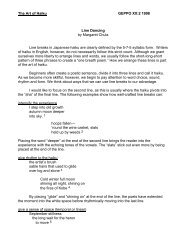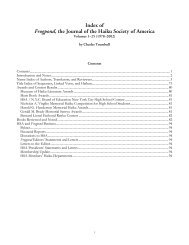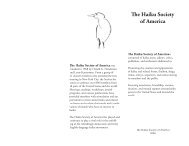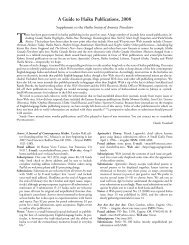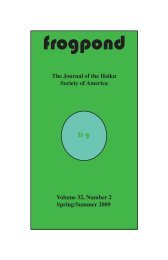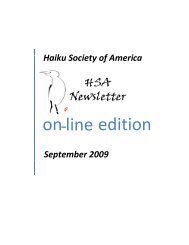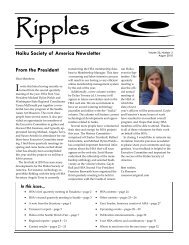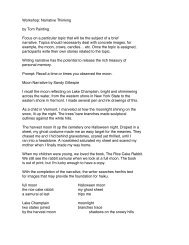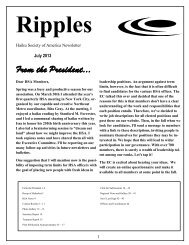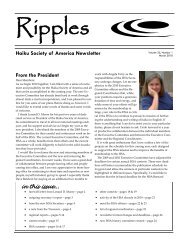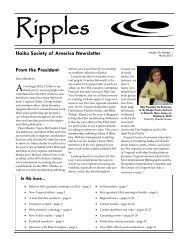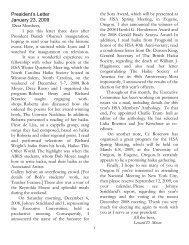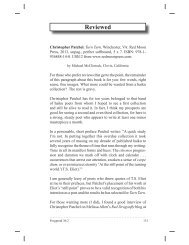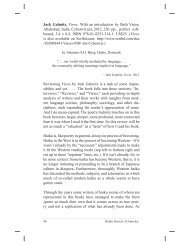Frogpond 32.1 ⢠Winter 2009 (pdf) - Haiku Society of America
Frogpond 32.1 ⢠Winter 2009 (pdf) - Haiku Society of America
Frogpond 32.1 ⢠Winter 2009 (pdf) - Haiku Society of America
Create successful ePaper yourself
Turn your PDF publications into a flip-book with our unique Google optimized e-Paper software.
<strong>Haiku</strong> <strong>Society</strong> <strong>of</strong> <strong>America</strong><br />
Revelations: Unedited<br />
by paul m., Rhode Island<br />
I was a bit apprehensive when asked to contribute to this<br />
column because I don’t think there is a “secret” to writing<br />
haiku—at least not one that I know. Each poem is its own<br />
moment and is approached from a different angle and mindset,<br />
so any “secret” must take these mathematically large possibilities<br />
into mind. Flexibility any one “secret” would have<br />
difficulty achieving. That said I do have a couple things I try<br />
to keep in mind when I write.<br />
The first is easily (and <strong>of</strong>ten) said but was perhaps the hardest<br />
to learn: Try to approach poetry with openness to experience,<br />
leaving all preconceptions behind. I believe strongly<br />
in experiential haiku and an insistence on letting things talk<br />
for themselves. In the past I have argued that from a reader’s<br />
perspective wholly made up poems are indistinguishable<br />
from experiential ones, so there shouldn’t be a stigma against<br />
desk-ku, in fact it shouldn’t even be a topic <strong>of</strong> discussion; that<br />
perspective, however, is from the reader’s point <strong>of</strong> view. As<br />
a writer, I want to expand my knowledge <strong>of</strong> the world and<br />
myself. A poem that is wholly made up, while possibly successful<br />
in a reader’s eye, is only successful to my writer’s ego.<br />
For me this was a hard lesson to learn because I was raised in<br />
a society in which we are taught that things mean other things.<br />
Stars and tea leaves tell our fortunes. A black cat can’t cross<br />
my path without my recognizing it as a bad omen. This symbolism<br />
is equally true regarding literature. I was taught that<br />
Frost’s “Stopping by Woods...” is not about stopping to watch<br />
the snow fall, but is about the meaning <strong>of</strong> land ownership. So<br />
I learned to approach poetry as if the poet was saying, “Let<br />
me tell you something through something else.” Further, there<br />
is a whole network <strong>of</strong> journals and websites that want our<br />
poems, and that we want to be published in. Editors we want<br />
to impress. So our first instinct is to show <strong>of</strong>f, to tell the editor<br />
something amazing. We think <strong>of</strong> the end result first. We think<br />
38



